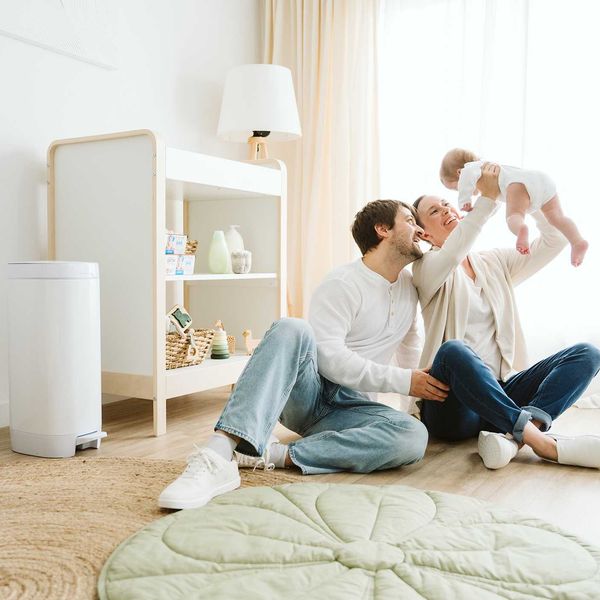Be there for her when she needs you the most.
8 Ways to Support a Friend Who’s Putting Her Baby Up for Adoption

That pink little plus sign just crossed your BFF’s pregnancy test, and she’s totally at a loss. This wasn’t planned. Whatever the reason is, your friend isn’t ready to parent right now. After weighing her options, she’s chosen adoption. Here’s where you come in. Put yourself in your friend’s shoes — she’s pregnant and scared, and she probably feels alone. Even if she’s got a super-sized support system at home or the best BF in the world (and he’s totally there for her all the way through), she still needs you. We talked to Katie Foley, MSW of Spence-Chapin Services to Families and Children about what you can do to support a friend who has chosen adoption.
1. Find a social worker. “Your friend may need an advocate and emotional support. Birth parents have rights determined by the state they live in. Make sure your friend is working with a licensed or accredited adoption professional in order to protect her rights in this process,” says Foley. She also notes that no one (this includes the social worker and adoption agency staff) should put any pressure on a woman considering adoption, saying, “She may invite you into meetings with a social worker for emotional support and/or to take notes about important details.”
2. Keep an open mind. “With so many of us having a connection to adoption, it means we all have our own ideas and opinions about adoption! Keep an open mind that every situation is different and every adoption plan is unique,” says Foley. This includes being there for your friend to talk to, no matter what she has to say. Along with that, remember that you’re not the expert. Sometimes the advice your BFF needs is out of your reach. Foley notes, “Listen to your friend closely about why she is choosing adoption, and encourage her to meet with experienced and reputable adoption professionals in order to know her rights so she can make the best plan for her and her baby.”
3. Listen to her plan. “After reviewing all of the options available to her (including parenting, adoption, kinship care, foster care and termination), she can make the best plan for herself and her baby. By considering all of her options, an expectant parent is being thoughtful about planning for her child’s future. They are not “giving up their baby,” as the saying goes,” says Foley. This may include providing support when it comes to the family that your friend chooses. “With support from her social worker and from you, she’ll choose a family with the same values as herself.”
4. Understand the vocab. Your friend, the social worker or the adoption agency staff may use terms that you’re not exactly familiar with. Learning about the adoption process and types of adoptions makes it easier for you to help your friend. Open adoption is one term you may hear a lot. “Open adoption means birth mothers have the opportunity to select and interview the adoptive parents and maintain an open adoption with their child,” according to Foley.
5. Talk about money. Nope, this doesn’t mean you need to get into the nitty gritty of your friend’s finances. But, you do want to make sure that she’s covered when it comes to pregnancy-related expenses. Foley says, “She may need assistance covering the gaps in her insurance or with pregnancy-related expenses (like insurance co-pays or a work wardrobe that’s maternity friendly).” She notes that these expenses may be covered in the adoption plan. Along with this, Foley says, “It would be helpful for you to help her explore her current insurance coverage to anticipate hospital delivery costs as early as possible.”
6. Offer to see the doctor. “Some medical providers know a lot about adoption and some don’t,” says Foley. “Help your friend explain adoption to her doctor by bringing information from the adoption professional to appointments.”
7. Provide post-adoption support. The help your friend needs doesn’t stop at delivery. She’s going through some major emotions, and needs you now more than ever. According to Foley, “After nine months of pregnancy and planning, the most emotional time is often after birth, when the baby has gone home with the adoptive parents. Any reaction or feelings are normal, so encourage your friend to continue to meet with her social worker if possible.” What can you do to help your friend right now? Foley suggests, “Bring over dinner, turn on Netflix or go out for a favorite meal — just being together is the important part!”
8. Keep the help going. Your support won’t end weeks or even months after the adoption. Foley says, “Help your friend find a community of birth parents for peer support. Some days can be more difficult than others: For example, how will your friend mark Mother’s Day? By being thoughtful and talking about the difficult things, you’re showing your friend that you care about her.” If post-adoption life isn’t what your friend thought, you may need to step in and help them figure out what will make things better for her. Foley notes, “Your friend is most likely in an open adoption with her child and the adoptive parents. This means she’ll receive photos and/or visit with her child throughout the year. If this relationship isn’t what your friend imagined, encourage her to speak with her social worker to navigate the open adoption.”
Do you need more information on adoption and how it works? A few resources that can help include Donaldson Adoption Institute, Spence-Chapin and ichooseadoption.org.
Have you helped a friend who chose adoption? Share your experience or support tips and tweet us @BritandCo !
(Photos via Getty)



















